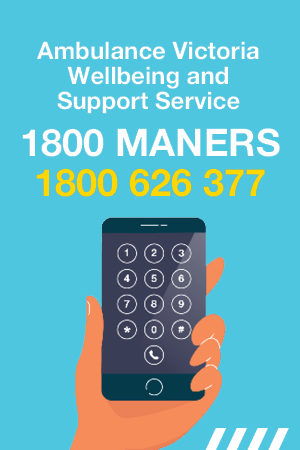PTSD is a disorder that can occur after someone has witnessed or experienced a traumatic event. It can be simple or complex, and often presents with significant anxiety and depressive symptoms.
Most Australians will be exposed to a traumatic event at some point in their life. It could be a car accident, assault, natural disaster, or sudden death of a loved one. Traumatic events can be scary but experiencing them does not mean that you will develop PTSD. Many people will recover, without progressing to PTSD.
Acute Stress
Paramedics are more likely than the average person to be exposed to traumatic events. It’s important to know that having a reaction to a traumatic experience is normal and understandable. In the immediate aftermath, it is common to experience acute stress. This can look like heightened anxiety, difficulty sleeping, restlessness, or even nightmares and flashbacks to the event.
Acute stress is temporary and usually resolves on its own, so be gentle on yourself.
However, if the symptoms are intense, and last longer than a few weeks, it may develop into PTSD.
Common symptoms of PTSD include:
- Re-living the traumatic event through unwanted and intrusive thoughts or memories, nightmares, and flashbacks (vivid images which make you feel like you are back at the traumatic event)
- Feeling wound-up, hyper-alert and/or on edge
- Avoiding any reminders of the event, like driving a longer route, avoiding certain people, shutting down any conversations about the event
- Feeling detached from others
- Feeling emotionally flat or numb
Seeing loved ones affected by PTSD can be also be traumatic in and of itself. Family members of first responders are known to experience symptoms of vicarious (or secondary) trauma. Hearing about their job, seeing their trauma symptoms, and knowing they may be returning to more traumatic events every time they leave the house, can cause significant anxiety and distress in those close to first responders.
Coping & Support
If you have experienced a traumatic event, try not to bottle up how you feel. Try to talk it through with your peers and loved ones, or a medical or mental health professional.
It’s best to avoid drugs or alcohol, or other numbing mechanisms like over-working or spending too much time on your phone, as this may end up just prolonging or delaying symptoms. Instead, use healthy coping strategies like exercise, socialising, maintaining routine and engaging in self-care. Like other anxiety disorders, engaging with relaxation strategies can also help with coping through the distress.
For more information on PTSD and other trauma reactions, check out Phoenix Australia.


